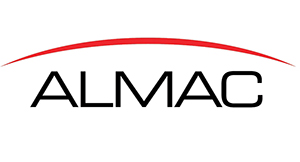Almac Diagnostic Services has announced significant updates to claraT, its unique software-driven solution for gene expression data analysis, which gives cancer researchers access to the most comprehensive and robust biomarker discovery support available.
Almac’s claraT, which has supported over 60 oncology studies to date for multiple Biopharma and Academic clients, classifies the most biologically relevant gene expression signatures into a comprehensive easy-to-interpret report that covers all 10 Hallmarks of Cancer.
The updates include 16 new gene expression signatures across the Hallmarks of Cancer, improved functionality with online data access and simplified reporting through an interactive dashboard. Clients receive a unique, interactive report that allows the easy visualisation of the key discriminating biologies within either a large cohort or an individual tumour sample.
Toshimitsu Uenaka, President EPAT (Epochal Precision Anti-Cancer Therapeutics), at Eisai, whose translational team have used Almac claraT stated: “We really found the claraT analysis of our studies to be very informative and a useful tool for our future drug discovery.”
We developed the claraT software solution... to classify cancers in a more robust manner
Adding these new gene expression signatures ensures that claraT remains current in the market with the most up to date content available. Almac claraT offers a unique solution in the market for biomarker discovery from either RNASeq data generated from sample profiling within Almac labs or from gene expression data sets generated elsewhere that require further bioinformatics analysis.
Professor Richard Kennedy, Global VP and Medical Director, Almac Diagnostic Services said: “Being able to equip leading Biopharma and academic cancer researchers globally with a powerful gene expression analysis platform has supported the identification of exciting new data.
“Conventionally gene expression signatures are applied individually to classify patients into molecular subgroups. Signatures designed to identify the same biology are often developed independently using different bioinformatics algorithms and therefore may not classify identically. To address this, we developed the claraT software solution which uses consensus between multiple published signatures, categorised into the Hallmarks of Cancer, to classify cancers in a more robust manner. Importantly, this standardised bioinformatics approach enables the analysis of datasets in a highly reproducible and cost-effective offering.
“Our proprietary claraT report has demonstrated its ability to accelerate mRNA-based research, enabling deeper insights into translational cohorts which leads to better drug development and trial stratification, potentially contributing to better patient outcomes in the future.”
Almac Diagnostic Services is hosting a GenomeWeb Webinar on Tuesday 13 June alongside leading cancer researchers from the University of Kansas, USA. The webinar will focus on how claraT was utilised effectively within breast cancer studies.

